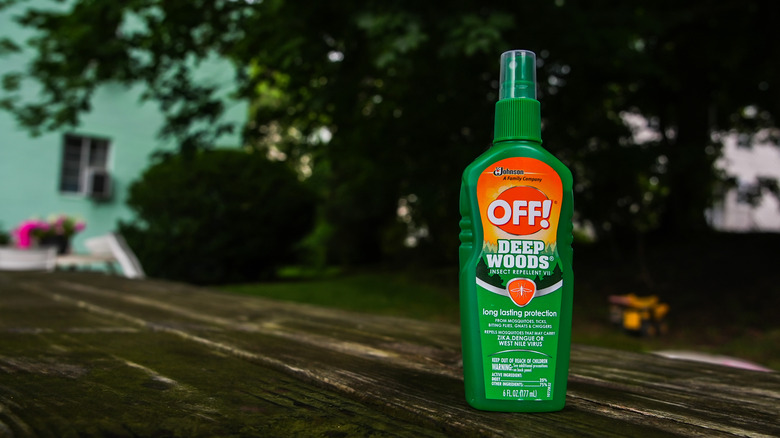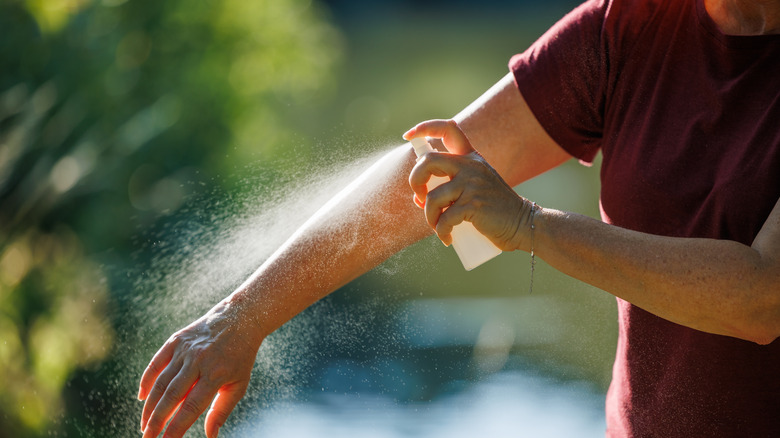What Is DEET Bug Repellent & What's The Safest Way To Use It In Your Yard?
When those pesky insects start buzzing and biting this summer, you might reach for a can of insect repellent to get rid of mosquitoes in your yard, perhaps one with DEET. Have you ever wondered what DEET bug repellent actually is and what's the safest way to use it in your yard? DEET is an acronym for the chemical N,N-diethyl-meta-toluamide. This chemical compound appears in multiple insect repellent products to protect you against bites from mosquitoes and ticks, as well as chiggers and fleas. DEET-containing repellents have been monumental against serious insect-borne illnesses like West Nile virus, Zika virus, malaria, and Lyme disease. Despite its continuous benefits, some consumers and experts are concerned about how DEET can affect the environment, including in your own yard.
DEET was first developed in 1946 by the United States Army to protect soldiers against mosquitoes, and eventually became available in consumer-facing products in 1957. Scientists believe it works by repelling mosquitoes both in taste and smell, so they stay away. Over time, concerns emerged about its safety for humans and nature. However, thorough reviews by the United States Environmental Protection Agency have indicated its safety, but it does require proper handling. DEET has been shown to kill Kentucky bluegrass and other types of grass. Other questions mount about DEET use affecting the water and soil. Before you liberally spray the can of DEET repellent at your next BBQ, here's what to know about safe use.
How to use DEET bug repellent safely in the yard
Because DEET can kill grass, it requires careful application. Researchers at Iowa State University Extension found that if golfers sprayed their shoes with DEET, the stray droplets would hit the turf, eventually killing it. Some golf courses now warn you to never use mosquito spray while on the course, but you should take the same precautions at home. When using a DEET bug spray in your yard, follow the product's directions, applying it directly to your clothing or skin as instructed while standing on pavement or asphalt. Never apply it to surfaces like tables or chairs. It is also not safe to use bug spray on your plants to keep pests off them.
DEET often ends up in wastewater and other water sources because of its frequent use. It doesn't degrade easily in water and may persist for a long time. Safe home use should focus on applying only as much repellent as necessary, and avoiding washing it off near stormwater drains or anywhere runoff may carry it into the waterways. As for soil danger, the National Pesticide Information Center reports that microbes and fungi can break down DEET, reducing toxicity. Regardless, you should avoid letting DEET leach into soil, especially if you want to attract worms to your yard. According to a Harvard University study, DEET may affect worms' reproductive systems, which may reduce the valuable benefits they offer soil, like breaking down organic matter and enriching its overall health. If you're concerned about using DEET, try planting strong-scented herbs like lemon balm (Melissa officinalis) and basil (Ocimum spp) to repel mosquitoes instead.

